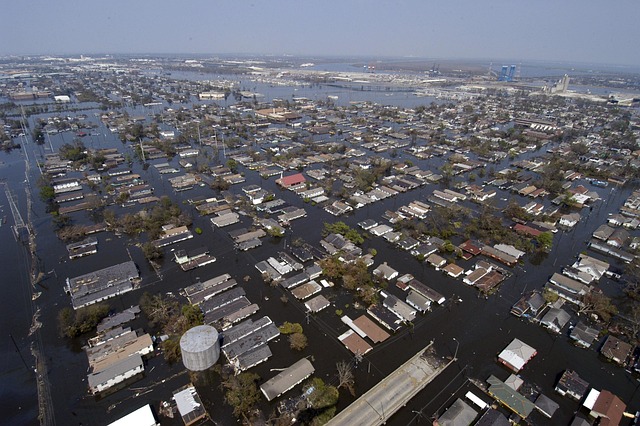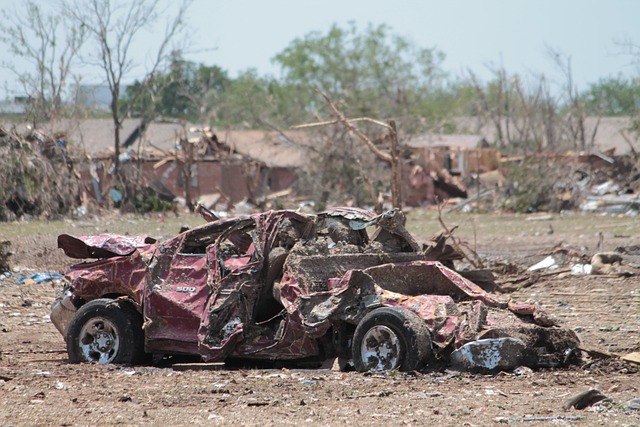Denver's robust economy and advanced infrastructure make it a resilient business hub. Businesses prioritize cyber security with backup power, cloud-based solutions, and detailed recovery procedures. Key components include off-site data backups, reliable IT infrastructure, regular testing, emergency response plans, and expert consulting. Proactive disaster recovery strategies ensure minimal downtime, maintain operations, and safeguard digital resources in Denver's competitive market.
“Denver, CO, stands out for its resilience, as evidenced by the swift recovery of its businesses after disasters. This article explores ‘Disaster Recovery in Denver’ from a business perspective, delving into key strategies and technologies enabling uninterrupted operations. We examine legal considerations, case studies of successful post-disaster businesses, and long-term benefits of redundancy investments. Understanding these components is vital for any Denver enterprise aiming to minimize downtime and maximize resilience in the face of unforeseen events.”
- Understanding Denver's Resilience: A Business Perspective
- Key Components of Disaster Recovery Strategies
- Technology's Role in Uninterrupted Business Operations
- Case Studies: Successful Businesses Post-Disaster
- Legal and Compliance Aspects for Continuous Service
- Investing in Redundancy: Long-Term Benefits for Denver Enterprises
Understanding Denver's Resilience: A Business Perspective

Denver, known for its rugged beauty and resilient spirit, has a unique advantage when it comes to business continuity after disasters. The city’s strong economy and robust infrastructure make it an attractive hub for businesses seeking to minimize downtime in the event of a crisis. In the face of natural calamities like floods or snowstorms, or man-made threats such as cyberattacks, Denver’s businesses are equipped with sophisticated disaster recovery plans.
This resilience is underpinned by advanced network recovery after disasters, ensuring critical infrastructure disaster recovery in Denver. The city’s strong focus on cyber security & disaster recovery denver means that businesses have robust systems in place to safeguard data and maintain operations during and after a disaster. From backup power sources to cloud-based solutions, Denver’s business community is prepared to weather any storm, demonstrating their commitment to staying operational and minimizing disruptions.
Key Components of Disaster Recovery Strategies

When developing a robust Disaster Recovery Strategy for Denver businesses, several key components come into play. Firstly, a comprehensive plan should include detailed backup and recovery procedures for all critical data and systems. This involves regular backups that are securely stored off-site or in the cloud to ensure immediate accessibility in case of a disaster. Secondly, businesses in Denver, CO, should invest in reliable IT infrastructure and hardware designed to withstand potential disruptions. Redundant systems, such as power supplies and network connections, can significantly reduce downtime during an emergency.
Additionally, Restoration Services Denver professionals emphasize the importance of testing and refining recovery protocols regularly. Conducting simulated disasters and drills allows businesses to identify vulnerabilities and improve their response time. An effective strategy also encompasses a well-coordinated emergency response plan, including communication strategies and roles designated for each team member. IT disaster recovery consulting in Denver can guide companies through these processes, ensuring they are prepared to minimize disruption and restore operations swiftly following any unforeseen event.
Technology's Role in Uninterrupted Business Operations

In today’s digital age, technology plays a pivotal role in ensuring uninterrupted business operations, especially when faced with disasters in Denver, CO. Advanced data backup and storage solutions allow businesses to quickly restore critical data and systems, minimizing downtime. Cloud-based platforms offer robust disaster recovery services in Denver, enabling companies to access their resources from anywhere, at any time. These technologies facilitate seamless transitions during crises, allowing operations to continue without significant disruptions.
Disaster recovery plan consultants in Denver are essential for businesses aiming to stay resilient. They assist in developing and implementing comprehensive strategies that involve backup power systems, redundant network connections, and secure off-site data centers. Moreover, local Denver IT support for disaster recovery ensures that companies have access to expert resources capable of swiftly addressing any technical challenges that may arise. Such proactive measures are vital for maintaining business continuity and ensuring rapid recovery from unforeseen events.
Case Studies: Successful Businesses Post-Disaster

In the face of disasters, businesses in Denver, CO have shown remarkable resilience, thanks to robust Disaster Recovery plans implemented by top-tier IT emergency response teams. One such example is a local non-profit organization that experienced minimal downtime after a severe flood. Their successful recovery was attributed to regular backups and a well-rehearsed disaster recovery plan, highlighting the importance of preparation in minimizing business disruptions.
Another case involves a mid-sized tech company that faced a cyberattack. Quick action from their IT emergency response team, including isolating affected systems, eradicating malware, and restoring data from secure backups, resulted in minimal data loss and rapid return to full operations. This demonstrates how proactive disaster recovery strategies, tailored to specific business needs, can ensure continuity even in the most challenging situations, ultimately driving resilience in Denver’s business landscape.
Legal and Compliance Aspects for Continuous Service

In the event of a disaster, businesses in Denver, CO, must navigate complex legal and compliance aspects to ensure continuous service and swift recovery. The first step involves understanding and adhering to industry-specific regulations, such as those set by the Department of Health and Environmental Quality (DEQ) for safe handling and disposal of materials after a crisis. This includes proper protocols for Crime Scene Cleanup Denver, ensuring that sensitive areas are treated with care to avoid legal repercussions.
Furthermore, robust data backup and recovery services are crucial for any business aiming to minimize downtime. Offsite data backup in Denver is an essential strategy to protect against data loss, which can be a significant barrier to continuous operations. Reliable service providers offer not just backup but also quick recovery solutions, enabling businesses to bounce back faster. This includes regular testing of data restoration processes and maintaining secure connections to ensure the integrity and accessibility of critical information during disasters.
Investing in Redundancy: Long-Term Benefits for Denver Enterprises

Investing in redundancy is a proactive strategy that offers long-term benefits for Denver businesses aiming to minimize downtime after disasters. By implementing robust disaster recovery plans, enterprises can ensure their critical infrastructure remains operational during unforeseen events. This involves utilizing advanced tools and technologies like cloud-based disaster recovery solutions in Denver, enabling seamless data backup, storage, and restoration.
End-to-end disaster recovery management Denver is not just about data protection; it’s a comprehensive approach that includes site redundancy, secure communication protocols, and rapid response strategies. Such measures safeguard not only digital assets but also the reputation and financial stability of businesses. In today’s competitive market, where downtime can translate into significant losses, prioritizing critical infrastructure disaster recovery Denver is a savvy investment for any forward-thinking enterprise.
Denver’s businesses have shown remarkable resilience, demonstrating that a robust disaster recovery strategy is key to maintaining operations without downtime. By integrating technology and implementing comprehensive plans, companies can ensure continuity in the face of unforeseen events. This article has explored various aspects, from understanding local business preparedness to the legal considerations, all vital for Denver’s thriving ecosystem. Investing in redundancy and embracing innovation are essential steps towards a more resilient future for Disaster Recovery Denver enterprises.
